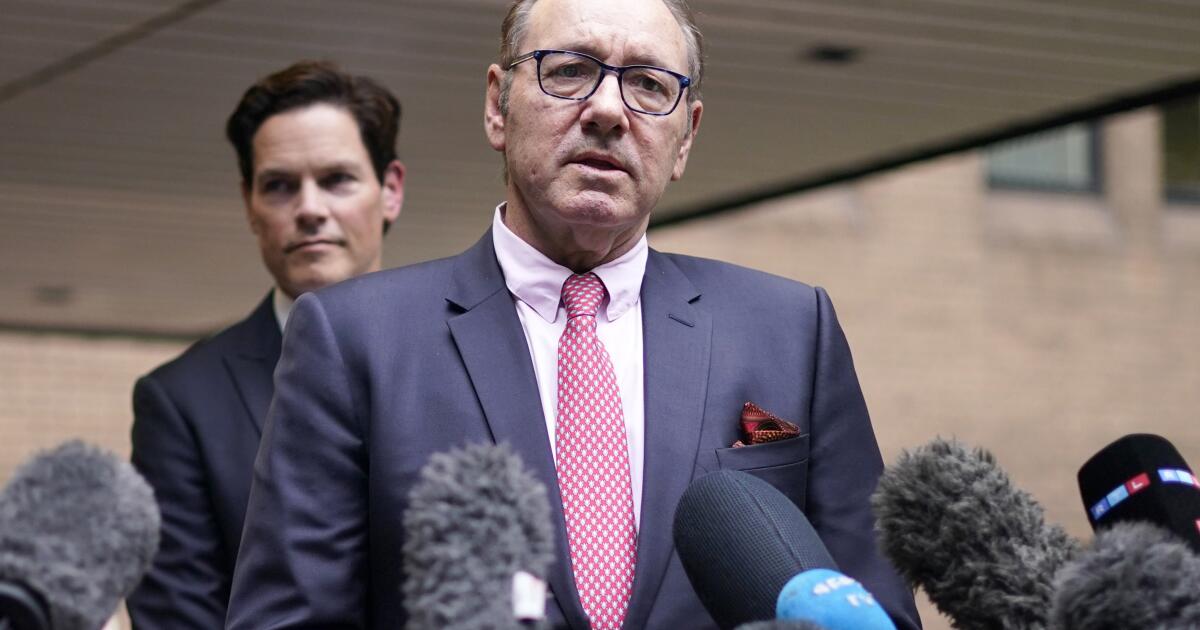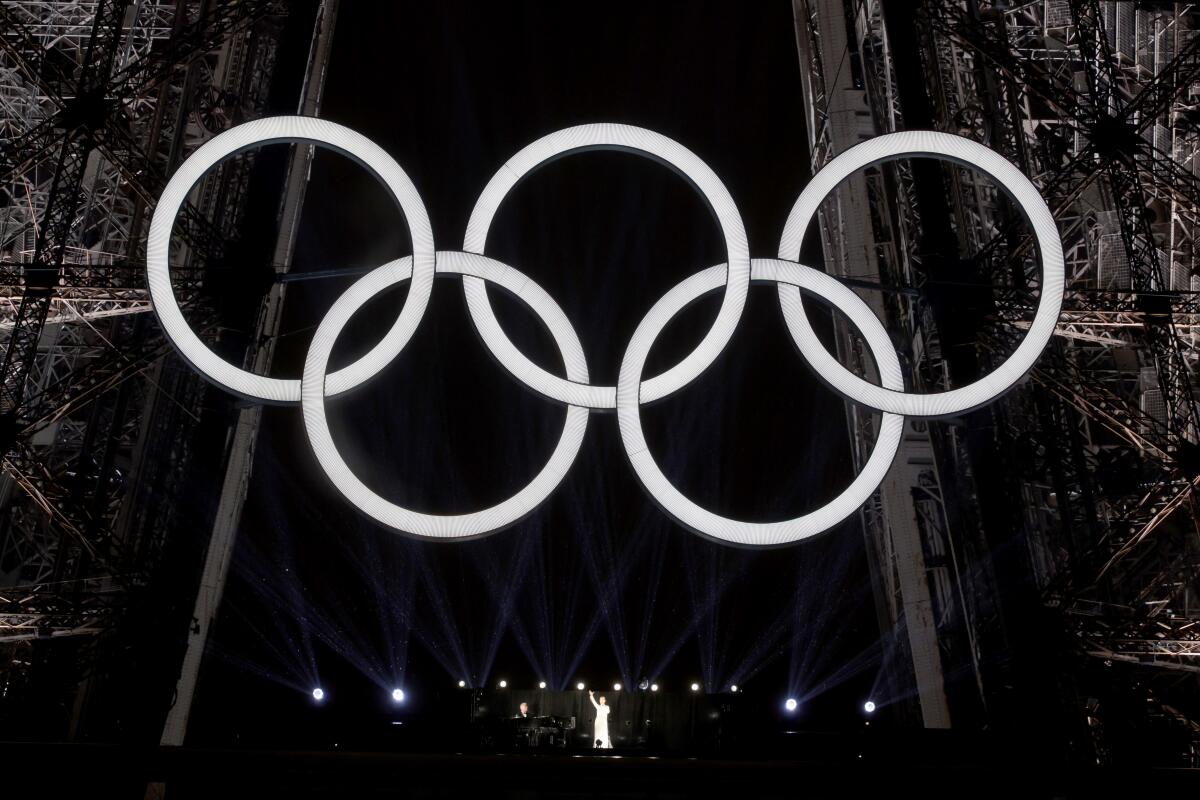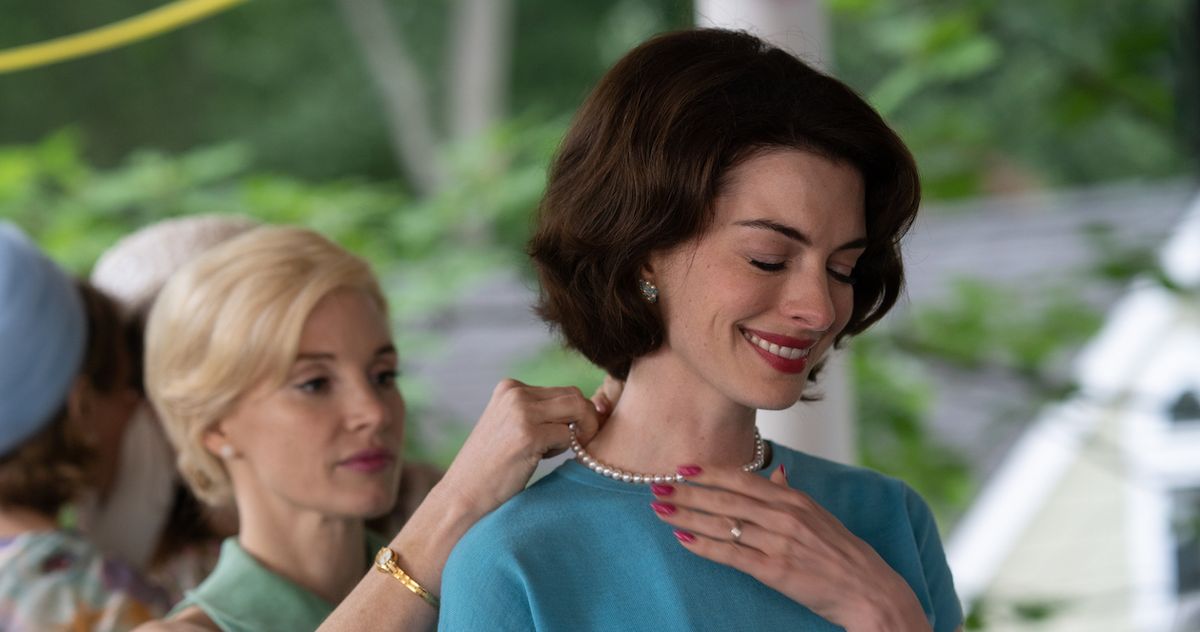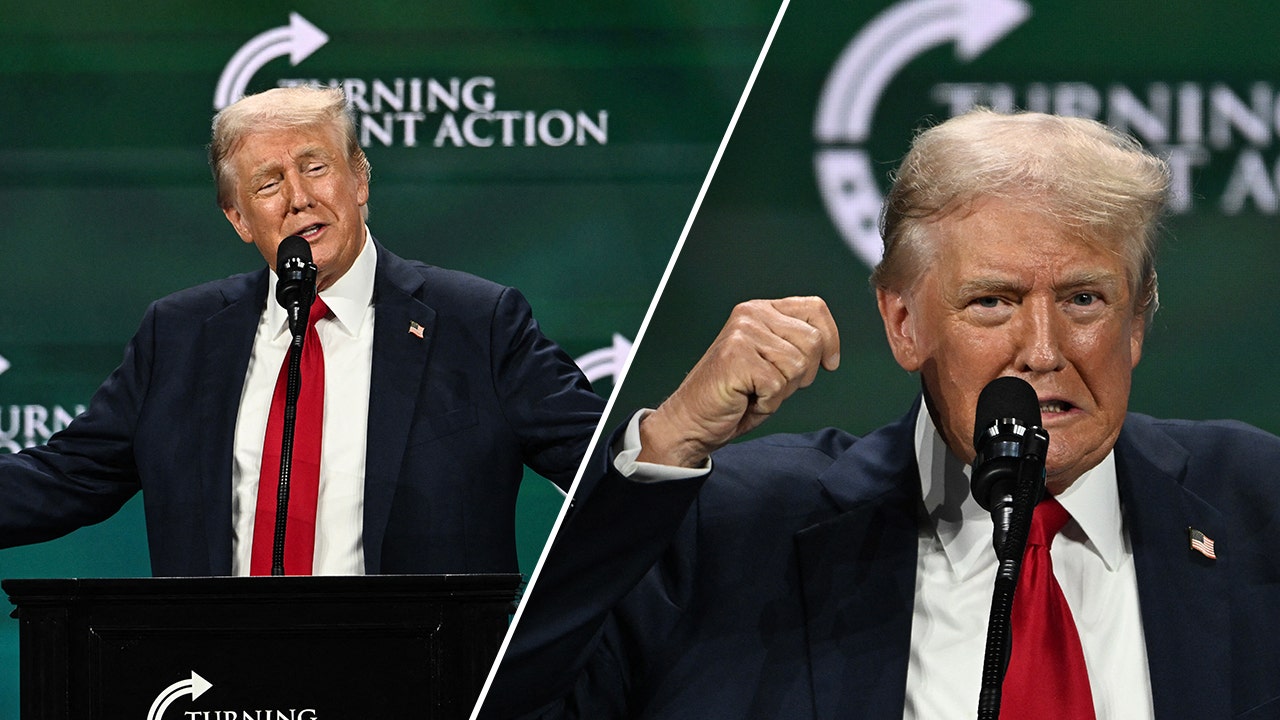Entertainment
Kevin Spacey gets support from Liam Neeson and others after fresh assault allegations

Sharon Stone, Liam Neeson and Stephen Fry are all voicing support for disgraced actor Kevin Spacey following a new documentary out of the U.K. containing fresh sexual assault allegations.
The “House of Cards” star disappeared from the public eye nearly seven years ago after he was accused of assaulting and harassing a number of young men. A variety of allegations from the United States and United Kingdom have been dropped or dismissed, or resulted in the actor’s acquittal, but “Spacey Unmasked” aims to revitalize the controversy with new allegations of inappropriate behavior from 10 men in Britain.
Spacey has denied the new allegations, but some of his peers were so outraged by the documentary that they spoke publicly to the Telegraph to offer their support for the actor.
“I can’t wait to see Kevin back at work,” Sharon Stone told the outlet. “He is a genius. He is so elegant and fun, generous to a fault and knows more about our craft than most of us ever will.”
Liam Neeson also reached out in alliance with Spacey, saying that “Kevin is a good man and a man of character. Personally speaking, our industry needs him and misses him greatly.”
Stephen Fry conceded that Spacey had been “clumsy and inappropriate,” but said that “surely it is wrong to continue to batter a reputation on the strength of assertion and rhetoric rather than evidence and proof?”
“Unless I’m missing something,” Fry said in criticism of the documentary, “I think he has paid the price.”
F. Murray Abraham and Trevor Nunn, who directed Spacey in productions at the Old Vic Theatre in London, where some of the incidents allegedly occurred, also wrote letters of support.
“I vouch for him unequivocally,” Abraham said. “Who are these vultures who attack a man who has publicly accepted his responsibility for certain behaviour, unlike so many others?”
Spacey, who won Oscars for best actor in 2000 for “American Beauty” and supporting actor in 1995 for “The Usual Suspects,” saw his legal troubles start in 2017 when Anthony Rapp accused the actor of molesting him at age 14. He was later cleared of those charges, but subsequent ones have kept him out of Hollywood.
Spacey himself told the Telegraph that all he wanted with regard to the allegations was “for people to ask questions and investigate” rather than rush to judgment. “And I am well aware that that did not happen.”

Movie Reviews
'Deadpool & Wolverine' movie review: Fox's last dance, Deadpool & Wolverine bromance

Superhero fatigue is real. With no good movies recently, Marvel has lost its course. But brace yourselves — straight from 20th Century Fox, sorry, Disney — a hero makes his grand MCU entrance. He’s the messiah, the merc with a mouth; he is… The Marvel Jesus. Buckle up, peanut, because this isn’t your average cape-and-tights movie — or is it?
Directed by Shawn Levy (‘Free Guy’), this third instalment is a hot mess —kind of like Wade Wilson himself on a bad hair day. Just as the world’s falling apart (again), the Time Variance Authority’s Paradox (Matthew Macfyden) recruits him to put his timeline out of its misery. Deadpool refuses and drags the worst variant of the Wolverine (Hugh Jackman) out of retirement to help stop this crazy scheme. They are sent to the ‘Void’ — yes, the same one from ‘Loki’ season one, episode five, now ruled by Cassandra Nova (Emma Corrin), Professor Charles Xavier’s evil twin.
The film takes you on a wild ride with surprise appearances from the Fox Universe. The plot is a bit shaky with jokes that sometimes fall flat, but it’s saved by some really cool action sequences, with slow-motion effects set to popular ’90s tunes. It’s a fun, if messy, farewell to the Fox universe, offering a peek at what mutant battles might look like in the MCU — and it doesn’t look too bad. Ryan Reynolds keeps it lively with his snappy humour, and Hugh Jackman proves yet again why he’s the ultimate Wolverine, leaving us with a touching montage of his ‘X-Men’ moments during the end credits.
So, does this Marvel messiah live up to the hype? Well, yes and no. Deadpool doesn’t exactly ace it. He’s the irritating but quirky hero we didn’t even know we needed, flipping the MCU on its head and turning multiversal crises into comedy gold. Marvel dug deep into the Fox universe, like scraping the last bits of chicken from a biryani pot.
The movie might do well at the box office, but they really need to sort out their timelines (pun intended) before they kick off the Mutant Saga.
Published 26 July 2024, 20:20 IST
Entertainment
Review: Olympics opening ceremony shined with best of Paris and France, but failed as TV

France took the opening ceremony of the Olympics out of the customary arena and onto the River Seine — and into the rain — Friday in what was undeniably a bold, unprecedented and, given the security nightmare, crazy take on the event. An Olympics whose motto is “Games Wide Open” ironically came with fences, checkpoints and police and soldiers numbering in the many tens of thousands. But they remained practically invisible through the broadcast, once again from NBC and also streaming on Peacock.
Almost nothing was revealed about the program ahead of time, past a few facts and figures — 300,000 spectators expected, a 3.7-mile route running east downriver from the Pont d’Austerlitz to the Eiffel Tower and Trocadéro, some 90 boats carrying 10,000 athletes, 12 thematic “scenes.” With little to go on, it was tempting to imagine what those scenes might encompass. Bearded existentialists drinking apricot cocktails? A nude descending a staircase? Jean-Pierre Léaud making one last appearance as Antoine Doinel? Striking railway workers? The band Telephone reunited? I was hoping to see at least one performer dressed as Jacques Tati’s M. Hulot, though I would have made it 100. Would there be mimes?
The answer to all those questions was no. Working with a team that included a historian, novelist, screenwriter and playwright, to say nothing of the choreographers and costumers, director Thomas Jolly — known for a 24-hour marathon staging of Shakespeare’s three “Henry VI” plays plus “Richard III” — cooked up something at once stranger and more appropriate: daffy, sexy, occasionally alarming — I would not have expected the decapitated Marie Antoinettes — and, one would say, quintessentially French. Even the rain, which, having arrived, stayed to enjoy itself, had a sort of Parisian quality, adding drama and romance. Though, of course, that part wasn’t scripted.
Performers during the Paris opening ceremony, which featured beheaded Marie Antoinettes.
(Bernat Armangue / Associated Press)
Taking the Games into the city center and putting the ceremony onto the river was a smart idea to begin with. You don’t go to Paris to stay indoors unless it’s to look at art or eat things cooked in butter; and if you’ve seen the inside of one over-lit stadium, you’ve seen them all. The Seine put the athletes, riding on their larger and smaller bateaux mouches, within spitting distance of Notre Dame, the Louvre, the Tuileries, Place Concorde, the Grand Palais and the Eiffel Tower.
There had been a few performers mentioned beforehand, including French Malian superstar Aya Nakamura; the “eco-metal” band Gojira, which, with its frequent collaborator the Franco-Swiss opera singer Marina Viotti, represented the Revolution; and the never publicly confirmed Celine Dion — who, in the event, did close the show, with a powerful rendition of Edith Piaf’s “L’Hymne à l’amour,” sung from high upon the Eiffel Tower. Lady Gaga, whose presence in the city had been noted, opened it — if you don’t count the winged accordion player on what I assume was the Austerlitz bridge — with a glamorous cabaret production of Zizi Jeanmaire’s ‘60s hit “Mon truc en plumes” set on gilded steps leading down to the river. That translates as “my thing with feathers,” and there were feathers, indeed — big pink fans, pink being the hue associated with that leg of the color-coded program.
Jolly mixed filmed pieces into the live performance. Most provocatively there was a gender-bending love story told through book titles that wound toward a suggested threesome — the show contained a decent amount of queer content. There was a dance in the scaffolding around Notre Dame. More crucial to the narrative, such as it was, were segments surrounding a masked and hooded torch bearer who would also be glimpsed in person along (and zip-lining above) the route. This bit included trips through the Metro, the catacombs — undoubtedly this was the first and surely the last opening ceremony to feature human skulls — and alligator-inhabited sewers, as well as the Louis Vuitton atelier (where they made the trunks that held the torch on its travels) and the Louvre, where figures left their paintings, later to emerge as giant heads in the river.
Behind the clock in the Musée d’Orsay, we got a clip from the Lumière brothers’ seminal film of a train arriving in a station and a puppet animation that nodded to Georges Méliès‘ “A Trip to the Moon,” “The Little Prince” and “The Planet of the Apes,” which, of course, featured that statue the French made us. I did find this part particularly delightful.
This operatic mix of mediums, spread out across the city, could only make complete sense as television — anyone present would have only seen what was in front of them. And yet, as television, it mostly failed — further fragmenting a fragmented event, which alternated between the parade and the show over some four hours, with commentary and cutaways and, after the first hour, commercials. It spoke only of the banality of TV and to remind you that this is not an ad-free world. (The insertion of a “Despicable Me” short, from NBC’s parent company, Universal, had corporate cross-promotion written all over it.)

Canadian singer Celine Dion closed the opening ceremony with a performance on the Eiffel Tower.
(Wally Skalij / Los Angeles Times)
The commentary, by Mike Tirico, Kelly Clarkson and Peyton Manning, had the effect of people talking during a play, or that jarring feeling when you’re in a foreign country and you suddenly hear American voices. They were perhaps working at a disadvantage, given the secrecy that had surrounded the production and a less-than-native understanding of French culture and history. But apart from the sort of sports statistics that no viewer will keep in their head longer than it takes to say them, they spoke largely of how they felt and how they imagined the athletes must feel. It turned the parade of athletes into the Macy’s parade.
I say “mostly” failed. Often enough the grandeur, audacity and nuttiness of the event shone through the screen — mezzo-soprano Axelle Saint-Cirel singing “La Marseillaise” from the top of the Grand Palais, a silver chevalier on a robot horse skimming along the river to carry the Olympic flag to the Trocadéro, where the athletes had finally debarked, and where speeches from International Olympic Committee President Thomas Bach and Games President Tony Estanguet made one feel there might be something more to the Olympic spirit than winning medals.
And there was the genuinely moving finale, with Dion coming across like Liberty Leading the People in Delacroix’s famous painting and the Eiffel Tower putting on its laser show. White-clad athletes from many years passed the torch and became a crowd as they jogged together to the Louvre and back to the Tuileries, where a giant gold hot air balloon — the French invented it — was tethered. It became the Olympic cauldron, and then rose into the air, where I assume it will stay until the closing ceremony comes to tell us its story.
Movie Reviews
What If Jessica Chastain and Anne Hathaway Had a Mother-Off, and We All Lost?

The strange case of Mothers’ Instinct.
Photo: Neon
There’s a new movie starring Jessica Chastain and Anne Hathaway out this week, which is normally the sort of thing you’d expect to have heard about. But, after its release in the U.K. months ago, Mothers’ Instinct is slipping into U.S. theaters with as little splash as an Olympic diver nailing a triple somersault tuck. The film, a thriller directed by Benoît Delhomme, is getting the treatment typically reserved for a disaster, which is a shame, because I’ve been dying to discuss it with someone, and that’s hard when no one has any idea what you’re on about. Mothers’ Instinct is, indeed, pretty terrible, and not in the so-bad-it’s-good sense, and yet there’s something strangely moving about it. It’s a poignant example of how what looks like rich material to actors can turn out to be lousy material for audiences. Mothers’ Instinct is a remake of a 2018 Belgian film adapted from a novel by Barbara Abel, and watching it, you can appreciate exactly why these two major actors signed on to star in it. Funnily enough, those same qualities go a long way toward explaining why the movie doesn’t work.
Mothers’ Instinct isn’t camp, but it’s close enough that if you squint, you can almost see a version of the film that tips into something broader. Of course, if you squint, you wouldn’t be able to appreciate how immaculately Chastain and Hathaway are costumed. They look incredible — not like two 1960s housewives, which is what they’re playing, so much as two people who keep switching outfits because they can’t decide what to wear to the high-end Mad Men–themed party they’re headed to later. As Alice, Chastain is styled like a Hitchcock blonde in pin-curled ash updos and cardigan sets, while as Alice’s neighbor and friend Céline, Hathaway is given a Jackie O. look that involves a shoulder-length bouffant, pillbox hats, and gloves. They’re cosplayers in a gorgeous, airless setting, adjoining houses on a street that might as well be floating in space, the husbands (played by Anders Danielsen Lie and Josh Charles) vanishing to work for long stretches. The artificiality of this intensely manicured re-creation isn’t to any particular end, which gives the whole movie the air of a Don’t Worry Darling situation in which no one ever wakes up to the twist, instead sleepwalking through a stylized dream of Americana.
In fact, while Alice is restless over having given up her job as a journalist to take care of her son Theo (Eamon O’Connell), and Céline gets ostracized by the community after the death of her son, Max (Baylen D. Bielitz), Mothers’ Instinct isn’t actually all that interested in the pressures of living under a repressive 1960s patriarchy. Instead, it’s about another time-tested theme, one that’s best summed up as: Bitches be crazy. The perfect sheen of its surfaces — Delhomme, who’s making his directorial debut, is a cinematographer who started his career with The Scent of Green Papaya and has since worked with everyone from Tsai Ming-liang to Anton Corbijn — is paired with a score that shrieks unease from the opening scene, in which Céline is thrown a surprise birthday party. The source of this suspense isn’t revealed until later, after Max takes an unintended swan dive off the porch and the women’s friendship is threatened by grief, guilt, and suspicion. Is Céline in mourning, or does she actually irrationally blame Alice for what happened while developing an alarming fixation on Theo? Is Alice right to be suspicious of her bestie, who’s unable to have another baby, or is she being paranoid because the mental illness that previously resulted in her hospitalization has returned? Is it odd that two feminist actors jumped to participate in a film that traffics so freely in unexamined stereotypes about women and hysteria?
Not, it seems, when the opportunities to stare coldly into space or look on in glassy betrayal are this good. I’m not trying to sound snide here — the characters in Mothers’ Instinct have no convincing inner lives at all, but the exterior work of the actors playing them is choice stuff. When Alice and Céline are getting along, Chastain and Hathaway nuzzle together supportively like long-necked swans. When things start to go south, Chastain opts for an aloof distance with stricken eyes, while Hathaway prefers a labored smile that drops as soon as she’s alone. Theirs is a brittle-off no one can win, but both try their hardest anyway. The effort reaches its crescendo at Max’s funeral, where Hathaway’s enormous eyes glimmer through the barrier of a black lace veil and Chastain tilts her face up so that the elegant tracks of past tears can gleam in the light. The scene ends with Céline collapsing in anguish while Alice rushes her tantrumming child out of the church, an explosion of drama that would be so much more effective if the movie had left any room for modulation instead of starting at 10 and staying there. Mothers’ Instinct gets much sillier before it ends, but given how little it establishes as its baseline tone, it doesn’t feel fair to say it goes off the rails. Rather, as Hathaway stares brokenly into the dark and Chastain tears apart her nightstand drawer in panic, what comes to mind is how great a set of GIFs this movie will make someday. That’s not much, but I guess it’s something?
See All
-

 World1 week ago
World1 week agoOne dead after car crashes into restaurant in Paris
-

 Midwest1 week ago
Midwest1 week agoMichigan rep posts video response to Stephen Colbert's joke about his RNC speech: 'Touché'
-

 News1 week ago
News1 week agoVideo: Young Republicans on Why Their Party Isn’t Reaching Gen Z (And What They Can Do About It)
-

 Movie Reviews1 week ago
Movie Reviews1 week agoMovie Review: A new generation drives into the storm in rousing ‘Twisters’
-

 News1 week ago
News1 week agoIn Milwaukee, Black Voters Struggle to Find a Home With Either Party
-

 Politics1 week ago
Politics1 week agoFox News Politics: The Call is Coming from Inside the House
-

 News1 week ago
News1 week agoVideo: J.D. Vance Accepts Vice-Presidential Nomination
-

 World1 week ago
World1 week agoTrump to take RNC stage for first speech since assassination attempt














